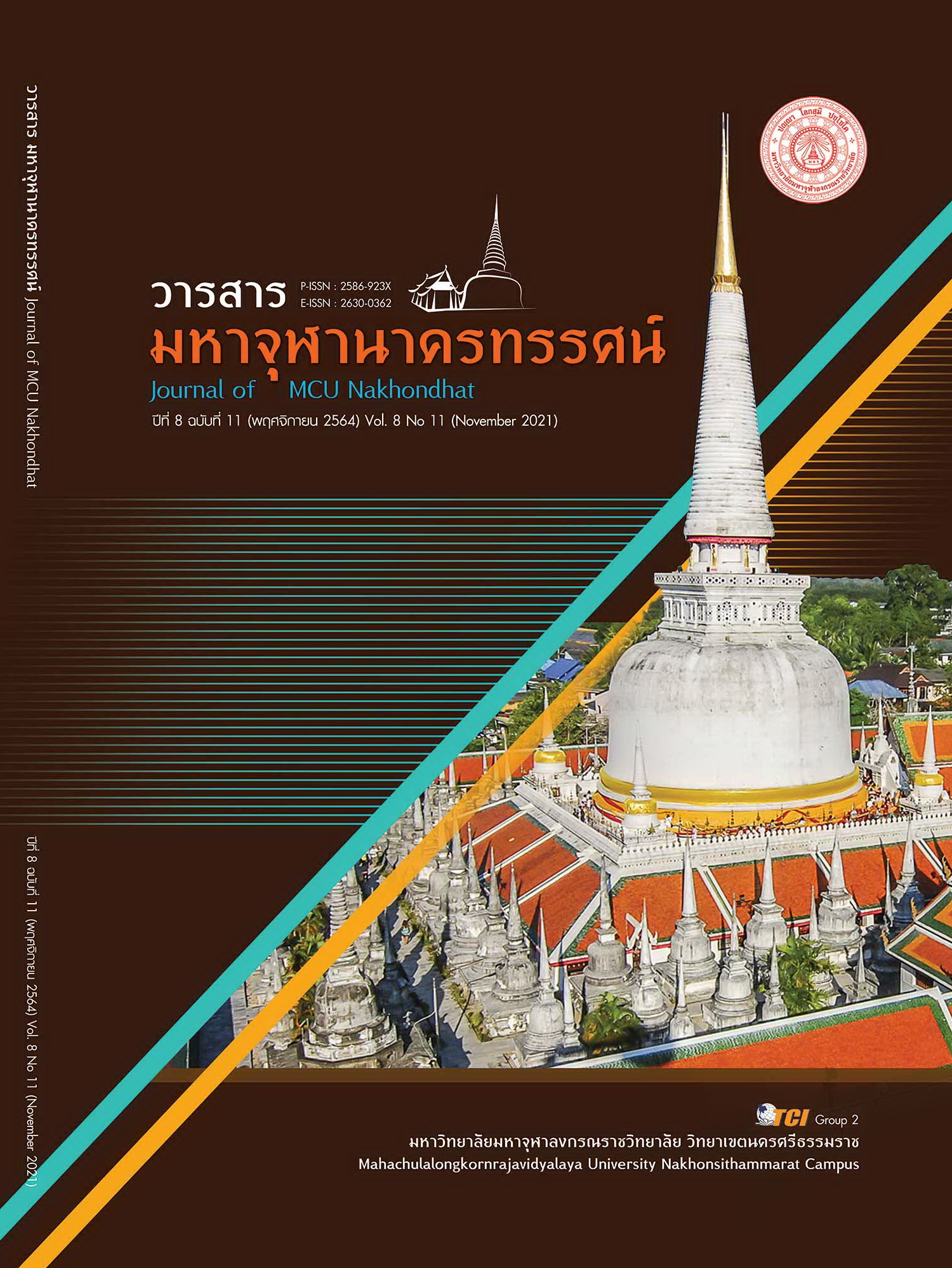LIFELONG LEARNING FACTORS OF THE UNDERGRADUATE AT RAMKHAMHAENG UNIVERSITY
Main Article Content
Abstract
The objectives of this research article were 1) study the level of opinions towards lifelong learning among Ramkhamhaeng University undergraduates; 2) to study the factors of lifelong learning; and 3) to assess the factors of lifelong learning. Using is a quantitative research model there are three methods of conducting research: This is the first part studying the level of opinions towards lifelong learning using questionnaires with the sample group was the undergraduates at Ramkhamhaeng University consisted of 400 people by finding the frequency, percentage, mean and standard deviation. Part two for the study factors of lifelong learning, used the statistics is Factor Analysis and Part 3 assessment of the factors of lifelong learning by the assessor were 7 instructors in charge of the course who have academic positions at Ramkhamhaeng University from the selection according to the faculty in the original royal decree system By the Dean of the Faculty 1) Law 2) Business Administration 3) Humanities 4) Education Science 5) Science 6) Political Science and 7) Economics. Used to Assessment From find the frequency, percentage, mean and standard deviation. The findings of this research revealed that: 1) the Undergraduates at Ramkhamhaeng University have opinions towards lifelong learning overall and in each aspect is at a high level sort by learning to know, learning to be, learning to live together and learning to do 2) The results of the study of factors of lifelong learning consisted of 7 factors including viz self-directed learning, life skills development, learning skills development, coexistence in a multicultural society, self-development and learning exchange, action learning and knowledge management 3) The results of the assessment of factors of lifelong learning found that the suitability of factors of lifelong learning overall are at a high level
Article Details
References
ภาควิชาการศึกษาต่อเนื่องและอาชีวศึกษา. (2563). แหล่งเรียนรู้ในรามฯ ที่ช่วยสนับสนุนการเรียนรู้ด้วยตนเอง. เรียกใช้เมื่อ 9 พฤศจิกายน 2563 จาก https://sites.google.com/site/rucoved/learning_ru
มติชนออนไลน์. (2561). เวิลด์แบงก์ชี้ปี 73 บัณฑิตตกงานพุ่ง 72 % ชี้ ‘เอไอ’ มาแทน ม.ในอเมริกาปิดตัวแล้ว 600 แห่ง. เรียกใช้เมื่อ 23 กุมภาพันธ์ 2564 จาก https://www. matichon.co.th /education/news _ 112 6294
ลินดา วัชรเสถียรพงศ์. (2562). Lifelong Learning ใช้ต่อกรกับความเปลี่ยนแปลงของโลกยุค Disruption. เรียกใช้เมื่อ 31 สิงหาคม 2563 จาก https://www.ftpi.or.th/2019/31376
ศุภัชณัฏฐ์ หลักเมือง. (2564). การบูรณาการการศึกษาและการเรียนรู้ในวิถีชีวิต. เรียกใช้เมื่อ 23 กุมภาพันธ์ 2564
สำนักงานคณะกรรมการพัฒนาการเศรษฐกิจและสังคมแห่งชาติสำนักนายกรัฐมนตรี. (2559). แผนพัฒนาเศรษฐกิจและสังคมแห่งชาติ ฉบับที่ 12 (พ.ศ. 2560-2564). เรียกใช้เมื่อ 28 กรกฎาคม 2564 จาก https: //www.nesdc.go.th/ewt_dl_link.php?nid=6422
สำนักงานเลขาธิการสภาการศึกษา. (2557). สภาวการณ์การศึกษาไทยในเวทีโลก ปี 2557. กรุงเทพมหานคร: ผู้แต่ง.
สำนักงานสาขาวิทยบริการเฉลิมพระเกียรติต่างประเทศ มหาวิทยาลัยรามคำแหง. (2564). เกี่ยวกับมหาวิทยาลัยโดยย่อ. เรียกใช้เมื่อ 3 เมษายน 2564 จาก http://www.oasc.ru.ac.th/index.php?option=com_content&view=article&id=245&Itemid=134
สุบิน ไชยยะ และคณะ. (2558). ทักษะที่จำเป็นต่อการเรียนรู้ตลอดชีวิตของนิสิตนักศึกษามหาวิทยาลัย: กรอบแนวคิดเชิงทฤษฎี. วารสารสงขลานครินทร์ ฉบับสังคมศาสตร์และมนุษยศาสตร์, 21(3), 149-171.
สุรศักดิ์ อมรรัตนศักดิ์. (2554). ระเบียบวิธีวิจัยหลักการและแนวปฏิบัติ. กรุงเทพมหานคร: ศูนย์ส่งเสริมวิชาการ.
University of South Australia. (2018). Practice_based learning. Retrieved May 17, 2020, from http://w3.unisa.edu.au/academicdevelopment/engagement/


